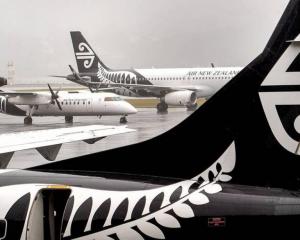
Of the total funding, $1.7 million would help fill gaps in the country's charging infrastructure.
Energy and Resources Minister Megan Woods announced 20 projects would receive funding from the third round of the Low Emission Vehicles Contestable Fund, administered by the Energy Efficiency and Conservation Authority (EECA).
The projects would have the government funding matched or bettered by businesses, she said.
One of the projects highlighted by Dr Woods was a 58-tonne fully electric truck to be used by Coda, in Hamilton, to shuttle Fonterra's dairy goods to the railway.
Taxpayers' Union executive director Jordan Williams asked why taxpayers were being forced to fund the transport expenses of businesses.
''This is a classic case of politicians trying to look tech-savvy and environmentally conscious by throwing money at selected businesses.''
A major logistics company like Coda, which transported milk for Fonterra, did not need handouts. The shareholders would be laughing all the way to the bank, he said.
Dr Woods said funding was going towards tourism opportunities such as electric camper vans.
Listed rental company Tourism Holdings, which told the Otago Daily Times last year it wanted to hasten the introduction of electric vehicles for its fleet, would receive $402,000 from the fund.
The company would convert an electric van into a camper van; invest in charging equipment, working with holiday parks; and develop dedicated travel itineraries with charging stations at 100km intervals. Tourism Holdings would aim to have 20 electric camper vans on the road within one year.
Foodstuffs South Island will receive nearly $400,000 to install fast charging stations at 14 locations, including Hokitika, Motueka, Westport, Reefton and Blenheim.
Wilson Parking will receive $60,622 to install 34 slow charging stations at Wilson-owned and operated sites. The majority of sites would be in Auckland. Smaller numbers would be installed in Hamilton, Wellington, Christchurch and Dunedin.
Dr Woods said the projects being funded showed there was an EV for almost every job or use in New Zealand.
Last year, more than 6000 EVs were registered in New Zealand.












